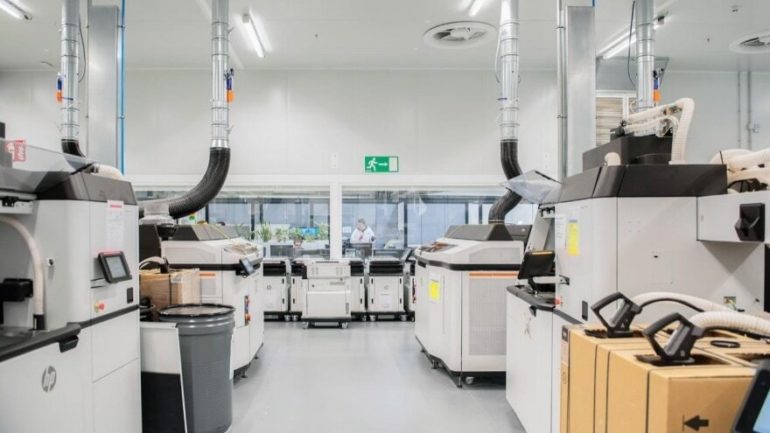The Ford motor company has announced that 3D printing offers a new source of low-volume auto parts. By using the waste from 3D printers for vehicle parts, manufacturers hope to increase sustainability within the automotive industry.
In fact, auto companies have already managed to prolong the lives of used 3D printed parts and powders to convert them into auto parts for Super Duty F-250 trucks, thus getting rid of all waste involved. The entire implementation process took less than one year overall.
Now, Ford plans to work with HP to continue re-using 3D printer materials to develop auto parts. This kind of sustainable conversion of waste into injection molded vehicle parts has proven an industry first. Fortunately, these new parts are both healthier for the environment and provide the same type of durability expected by both Ford and HP as well as their customers.
In fact, these parts show better resistance to moisture and chemicals than previous version, are seven percent lighter and 10 percent less expensive. The research team at Ford has even found 10 other fuel-line clips on existing automobiles that could benefit from these revolutionary materials and are aiming to implement these materials for future models.
Moreover, as 3D printers already utilize extensive recycling strategies that allow them to re-use the majority of their own waste, this new solution promises to enable the 3D printing process to reach a zero-waste output. Both companies have expressed great optimism regarding the combination of two their two different industries.
As part of the process, Ford has begun manufacturing various materials and processes for 3D printing, such as filaments, liquid vat polymerization, powders and sand. Furthermore, they have already begun to integrate 3D printing into the manufacturing process at the assembly line in order to both enhance quality and save time.
With the support of fellow companies, the oral care medtech organization SmileDirectClub, HP recycling partner Lavergne and Ford supplier ARaymond, Ford and HP are already converting molds and discarded powders from the 3D printing process. Indeed, most recently, Ford uses its more than 60 HP 3D printers to produce over 40,000 aligners per day. The 3D printer parts used contribute to the recycled collection to increase materials volume for Ford.
This conversion process works by transforming the molds and powders from the 3D printers into high-quality recycled plastic pellets, useful for injection molding. Ford engineers then use these pellets to manufacture fuel-line clips.
Next generation of Ford family to take seats on board
More information:
Dearborn, M., Leading a Sustainable Revolution: Ford and HP collaborate to transform 3D Waste into Auto Parts, an Industry First, Ford Media Center, 25 Mar. 2021, media.ford.com/content/fordmed … able-revolution.html
2021 Science X Network
Citation:
Ford and HP join forces to use 3D printer waste for auto parts (2021, March 29)
retrieved 29 March 2021
from https://techxplore.com/news/2021-03-ford-hp-3d-printer-auto.html
This document is subject to copyright. Apart from any fair dealing for the purpose of private study or research, no
part may be reproduced without the written permission. The content is provided for information purposes only.



